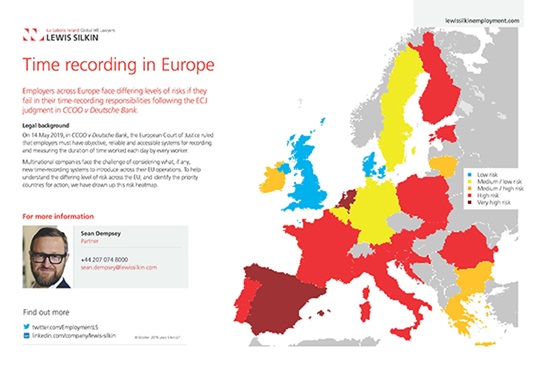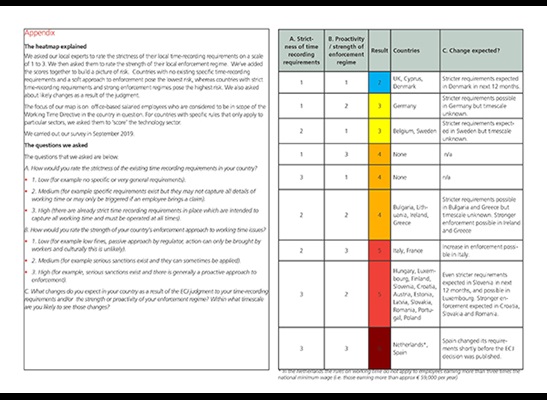
Recording working time in Europe: a risk heatmap
14 November 2019
Employers across Europe are facing the challenge of responding to a recent European Court of Justice (“ECJ”) ruling on time-recording obligations. We’ve drawn up a heatmap to show, at a glance, the differing levels of risk across the European Union.
Last May, in the Spanish case CCOO v Deutsche Bank, the ECJ ruled that employers must have reliable systems for recording actual working time, and that EU member states have responsibility for ensuring that compliant time-recording systems are set up. It is for each country to decide upon its own systems, taking into consideration factors such as the size of the employer and the sector in which it operates.
Before the ECJ’s ruling, EU member states took a variety of approaches to time recording and enforcement of working time rules. They can be expected to take different approaches to implementing this judgment.
Against this background, multinational companies face the challenge of considering what, if any, new time-recording systems to introduce across their EU operations. For many, introducing a strict recording regime feels like a regressive step in a world of work that has become so much more agile and flexible.
To help companies understand the differing level of risk across the EU, and identify the priority countries for action, we have drawn up the risk heatmap below. This was produced with expert input from firms in Ius Laboris, the leading international employment law service provider.
The full version of the heatmap is available here

